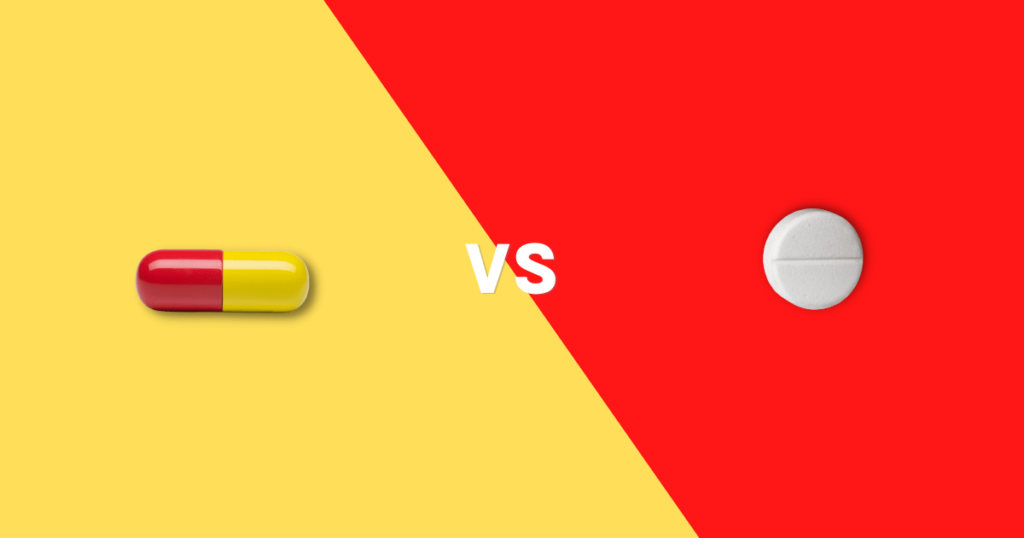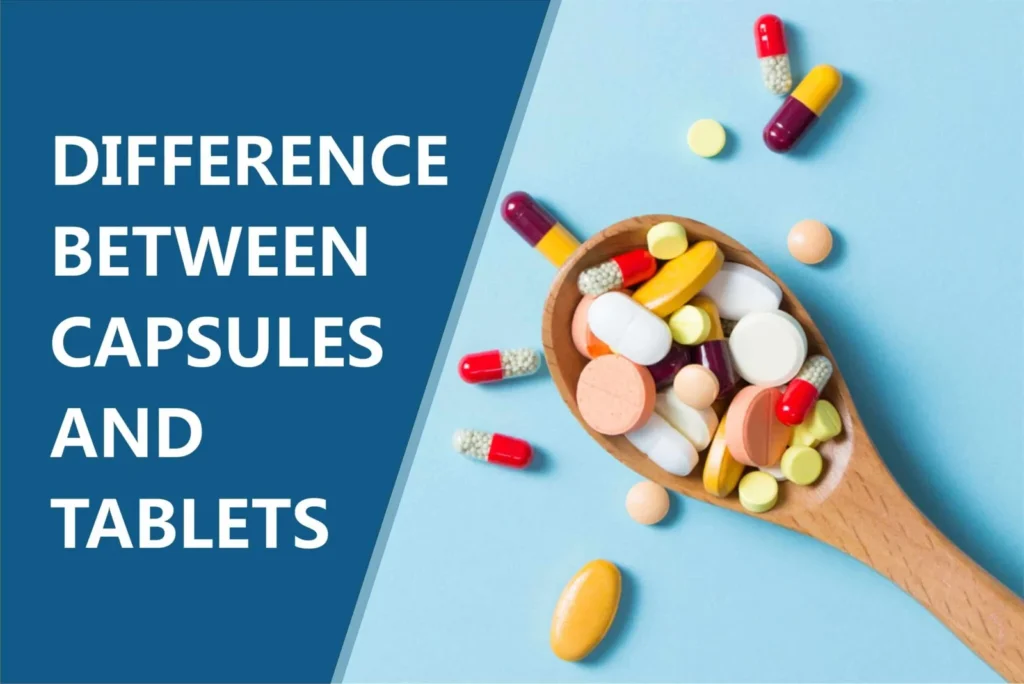
Popular types of oral medication, capsules and tablets have unique qualities and advantages. The variations between capsules and tablets will be discussed, together with their relative benefits and drawbacks, and a thorough cost comparison will be given in this paper. Knowing these differences will enable customers to decide which medications they prefer with knowledge.
Tablets and Capsules: An All-Inclusive Guide

Describes Tablets
Made from powdered medicine compressed into a smooth, firm form, tablets are solid pills made just of medication. They range in form and size from round to oblong (caplets), and in colors as well. Certain tablets have score lines built in order to help with splitting.
Tablets: Their advantages
Tablets often have a longer shelf life and are more stable than capsules.
Certain pills are designed to be chewed, which facilitates their intake.
Manufacturers can cram more drug into a pill, therefore enabling greater dosages.
Often to change the dosage, tablets can be broken in half or thirds.
Tablets come in formulations including delayed release (DR), extended release (ER), and immediate release (IR).
Tablets: Negative Aspects
Generally speaking, tablets cause the body more time to absorb than capsules.
Two tablets may taste unpleasant either medicinal or bitter in the mouth.
Tablets may not always dissolve uniformly in the digestive tract, so their efficacy could be affected.
What Are Capsules?
Another type of oral medication are capsules, which house either liquid or powdered medicine inside an outside shell. The medicine is released when the shell breaks down in the digestive track. Hard-shelled or soft-shelled capsules abound; usually made of gelatin, soft-shelled capsules contain liquid medication while hard-shelled capsules usually contain powdered medication.
Drawbacks of Capsules
Generally speaking, capsules are absorbed faster than tablets.
Usually, the therapeutic flavor of capsules is hidden by their outside shell.
Since capsules frequently have superior absorption rates, more of the drug gets into the bloodstream.
Conspects of Capsules
One could say that capsules have a shorter shelf life than tablets.
Usually unable to contain as much medication as tablets, capsules must be larger in order to contain greater dosages.
The potency of capsules can be influenced by sunshine and humidity, therefore affecting their sensitivity to environmental factors.
Commonly used in soft-shelled capsules is gelatin, obtained from animal sources.
Comparison of Tablets and Capsules in Pricing

For the same prescription, capsule and tablet prices might vary significantly—often between $10 and $100 per month. Here are few noteworthy instances:
Doxycycline
Treats infections, rosacea, and acne.
Price Comparison: Both doxycycline hyclate and monohydrates come in tablet and pill versions. The dosage may affect the cost; so, it is advised to go for the less expensive choice. Tablets are less costly for some doses; capsules are more affordable for others.
Venlafaxine ( Generic Effexor XR)
Antidepressant uses:
Comparison of Prices Generally speaking, Venlafaxine ER costs more in tablet form than in capsule form at all doses. Unless a particular necessity exists to split the pill, capsules are advised.
Tizanidine, sometimes known as Generic Zanaflex
Muscle relaxant Uses:
Price Comparision : Typically speaking, tizanidine tablets are less costly than capsules. Though under fasting conditions the absorption is comparable, consumed with food it varies. Regular users should weigh this while deciding which of the two forms best for them.
Final Thought
When choosing between capsules and tablets, one should take into account their compositions, benefits and drawbacks as well as their prices. While capsules have faster absorption and no pharmaceutical taste, tablets have a longer shelf life and greater dosage capacity. Price differences can be significant; so, it is advisable to consult pharmacists and healthcare professionals to select the most affordable choice.
This thorough comparison should help one make wise choices regarding preferred medications, therefore improving health results and saving money.
Disclaimer
These publications are educational but they do not aim to substitute diagnosis, treatment, or expert medical advice. See a certified health practitioner always if you have any medical questions. The writers are not liable for any result arising from the material in this article. See a medical practitioner for individual guidance.